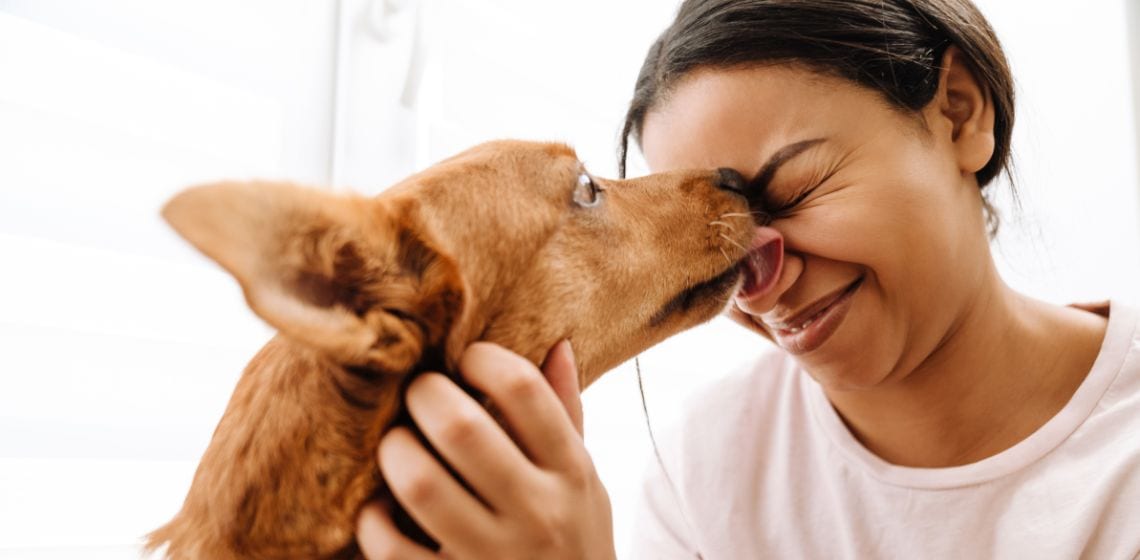Table of Contents
1. Is it fine if my dog sleeps in my bed?
The answer to this question is specific to each companion. If you want your dog to sleep with you, you must consider several factors, the most important being, is it safe for your pet. If you have a very small dog that could be harmed if they fell or jumped off the bed, sleeping in your bed may not be the best option. Alternatively, if you have a young puppy that may not be trustworthy in your home unsupervised, this dog probably isn’t the best candidate for sharing a bed as they may get into mischief during your slumber. Another factor to consider is your dog’s personality. If your dog has a problem with guarding resources or is excessively protective of you or their environment, sharing a bed should be avoided.
2. What if my dog ate the cat’s food?
If your dog has consumed cat food as an occasional snack, there is likely nothing to be concerned with aside from gastrointestinal upset. Cat food fed to dogs long-term is also unlikely to cause problems unless there are underlying health concerns. Always consider chatting with your veterinarian before making changes to your dog’s diet. You can learn more about this topic here.
3. Can I give my dog a human bath product if I run out of pet shampoo?
The pH of dog skin varies from the pH of human skin. It is possible that human shampoo could cause contact irritation or potentially dry out your dog’s skin. As a result, it is best to bathe your dog in dog shampoo.
4. Is it normal for my dog to eat grass?
Dogs are notorious for eating grass. The occasional grazing of grass can be normal. However, if grass consumption is excessive, or worsening, or if the behavior is accompanied by other signs like inappetence, your veterinarian should be consulted. Some animals may consume grass because of an underlying medical condition.
5. Should I brush my dog’s teeth? How often?
Yes! You should strive to brush your dog’s teeth to help physically remove bacteria and plaque. Brushing your dog’s teeth daily is the gold standard, however, brushing a few times a week is also beneficial. Make sure not to use human toothpaste. Visit www.vohc.org for dog treats and other items that have been proven to reduce periodontal disease!
6. Can my dog catch my cold?
Some pathogens can be shared between you and your pet. Fortunately, viruses that cause the common cold in humans rarely jump species, making it highly unlikely for your pet to develop your cold according to this article written by the AKC.
7. What should I do if my dog seems scared of the vet?
It is important to be able to read your pet’s body language, and it is important to set your pet and your veterinarian up for success. First, it is important that you remain calm as your dog will easily pick up on your anxiety. Desensitizing your pet to the vet office is essential. Offer treats and positive reinforcements for good behavior. Your veterinarian will likely pick up on ques from your dog, however, it is important to always verbalize things that make your pet uncomfortable to ensure a safe interaction between your pet and the veterinary staff. Your veterinarian may offer additional suggestions to help combat anxiety including anxiety medication for office visits.
8. How often should I take my dog to the vet for a checkup?
On a young, healthy dog, twice annual visits are recommended. The frequency of these visits may increase if a chronic health condition is diagnosed or as the patient matures.
9. Is it okay if my dog licks my face?
Most dogs will lick their owner’s face and can be endearing. But what bugs are really in their mouth, and is this safe? Care should be taken to avoid allowing your dog to lick your mouth or any open wound as this could pose a risk. If your dog licks your face or your hands, and the skin is not broken, this is unlikely to be a concern, however good hygiene is recommended. Licking in general should be avoided in immune compromised individuals as they are more likely to develop illness from otherwise less concerning pathogens.
10. Why does my dog sniff other dogs’ behinds?
For dogs, sniffing behind is a lot like shaking hands. Dogs have scent glands just inside their rectum called anal glands. These secrete an identifiable scent that provides other dogs with vital information, including if they’ve met a particular dog before. You can learn more about this here.
Conclusion
Being a dog owner brings an immense amount of joy to our lives. However, pet ownership is not black and white, there are several unknowns. It is important to consult a reliable source like your veterinarian when questions regarding your pet’s care or behavior arise. Here at The Vets, we are happy to help! Schedule a home visit with one of our qualified veterinarians for stress-free care for your pet.

Dr. Marti Dudley attended veterinary school at Ross University in St. Kitts, and completed her clinical year at Virginia-Maryland Regional College of Veterinary Medicine. Since graduating in 2014, Marti has worked as an associate veterinarian at a small animal practice in her hometown of Williamsburg, Virginia. She enjoys providing personalized care to patients and emphasizes the importance of preventative medicine. Marti shares her home with her husband and children, along with a menagerie of pets. In her spare time, she enjoys camping with her family and relaxing with her pets.








